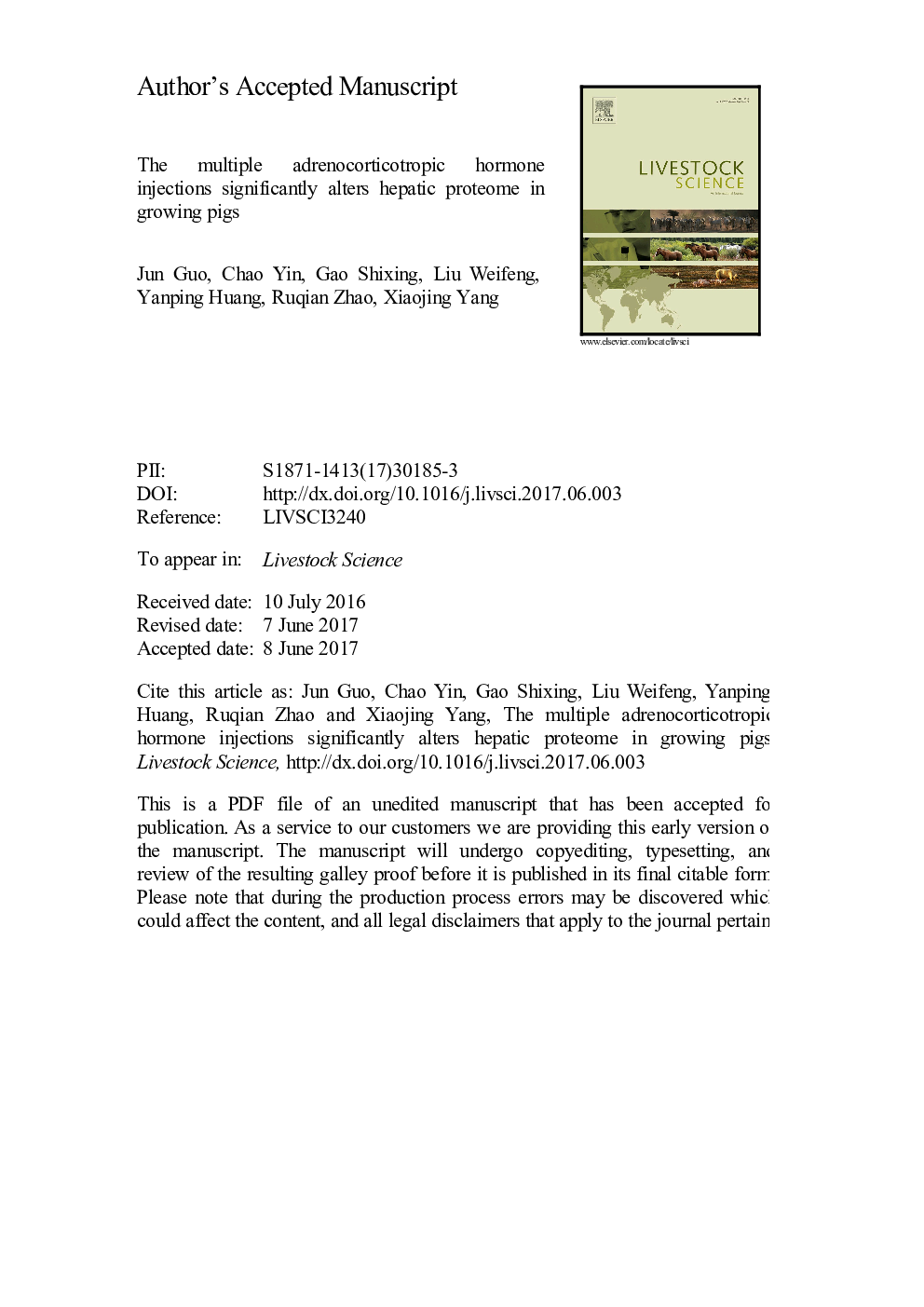| Article ID | Journal | Published Year | Pages | File Type |
|---|---|---|---|---|
| 5543113 | Livestock Science | 2017 | 27 Pages |
Abstract
Currently, the effects of stress on the body metabolism are attracting more and more attentions. To better understand the probable stress-induced metabolic changes, the changes in plasma indices and hepatic proteome were investigated in pigs fitted with jugular venous catheters administered adrenocorticotropic hormone (ACTH), intramuscularly twice daily for 7 days. In particular, plasma hormones, blood cells and biochemical indicators were analyzed. In addition, the hepatic proteome was analyzed by two-dimensional electrophoresis and matrix-assisted laser desorption ionization time of flight mass spectrometry. The results revealed that after the initial ACTH injection, plasma ACTH, cortisol, triiodothyronine and tumor necrosis factor α increased (P Ë 0.05). Additionally, lactic dehydrogenase activity increased (P < 0.05), and both leukocyte and lymphocyte count decreased (P < 0.05). In comparison, after the ACTH injection for 7 days, hepatic proteomics analysis identified 27 significantly changed proteins and most of these proteins (49%) are involved in metabolism, but plasma indices showed no obvious change. In conclusion, compared with the obvious changes in plasma indices after the initial ACTH injection, the multiple ACTH injections did not change plasma indices, yet the hepatic proteome profile was significantly altered. The results provide useful information for a better understanding of the effects of stress on metabolism.
Keywords
Related Topics
Life Sciences
Agricultural and Biological Sciences
Animal Science and Zoology
Authors
Jun Guo, Chao Yin, Shixing Gao, Weifeng Liu, Yanping Huang, Ruqian Zhao, Xiaojing Yang,
